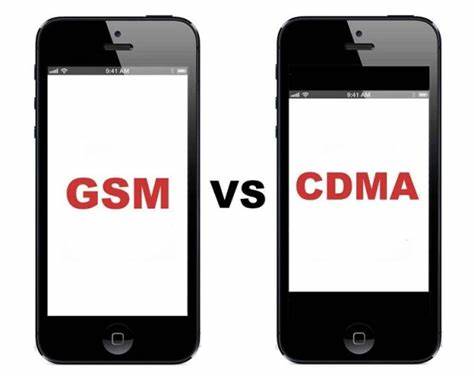CDMA and GSM are two different network technologies used in mobile phones. The main difference between them lies in the way they handle network communication and technology standards, resulting in different compatibility and functionality with devices and networks.
CDMA, or Code Division Multiple Access, is more prevalent in the United States, while GSM, or Global System for Mobile Communications, is widely used globally. Understanding their differences is essential for choosing the right technology for your mobile needs, as it impacts network coverage, roaming capabilities, and device compatibility.
We’ll delve deeper into the specific contrasts between CDMA and GSM to help you make an informed decision when selecting a mobile service provider or purchasing a new phone.
The Fundamentals Of CDMA And GSM
CDMA (Code Division Multiple Access) and GSM (Global System for Mobile Communications) are the two main mobile communication technologies. The evolution from analog to digital brought about significant advancements in the way mobile networks operate. Key technical differences between CDMA and GSM networks relate to their signal processing methods and network infrastructure. These differences have implications for mobile users, impacting aspects such as network coverage, call quality and device compatibility. CDMA and GSM technologies play a vital role in the functioning of mobile networks and understanding their disparities is crucial for consumers to make informed choices when selecting mobile devices and service providers.
Comparing CDMA And GSM
When comparing CDMA and GSM, it’s important to understand the differences in network architecture and signal transmission. CDMA technology utilizes a spread-spectrum technique, allowing multiple signals to be transmitted simultaneously across a broad frequency range.
Conversely, GSM operates on a time-division multiple access (TDMA) protocol, where each user is assigned a specific time slot within a given frequency band. This variance affects compatibility and global reach, as CDMA networks are generally more prevalent in the United States, while GSM networks dominate internationally. In terms of security and call quality, CDMA tends to offer better call clarity and a more secure connection due to its unique coding scheme. However, GSM networks provide the advantage of seamless international roaming and interoperability across different networks.

Making The Choice
Cdma and GSM are the two main types of cellular networks. CDMA stands for Code Division Multiple Access, while GSM stands for Global System for Mobiles. When making the choice between the two, there are several factors to consider for individual users. Cdma networks boast better call quality and security, while GSM networks enjoy wider international roaming compatibility. In terms of the future of cellular networks, the development of 5G technology is expected to revolutionize the industry, providing faster speeds and more reliable connections. With both technologies having their own unique advantages, the decision between CDMA and GSM ultimately depends on the specific needs and preferences of the user.
Frequently Asked Questions Of CDMA And GSM
What Is The Difference Between CDMA And GSM Networks?
CDMA and GSM are different technologies for cellular networks. CDMA uses a spread-spectrum technique, while GSM uses TDMA for managing calls. Both technologies have their advantages and limitations but are compatible with different frequencies and devices.
How Do Cdma And Gsm Differ In Terms Of Network Coverage?
CDMA and GSM networks vary in coverage due to their different technologies. CDMA offers better call quality and coverage in rural areas, while GSM has broader global roaming capability. Network coverage depends on the carrier and the user’s location.
Can I Switch My Phone From CDMA to GSM Or Vice Versa?
Yes, you can switch between CDMA and GSM networks by using a compatible device. However, some phones are designed specifically for either CDMA or GSM, so it’s essential to check for compatibility before making the switch. Ensure the new network supports your phone’s technology.
Conclusion
In a nutshell, CDMA and GSM have their unique strengths and limitations. Both technologies drive our mobile communications, and understanding their differences is vital for making informed decisions. Whether you’re a consumer or industry professional, knowing the distinctions empowers you to pick the best fit for your needs.
Stay informed and make the right choice!

